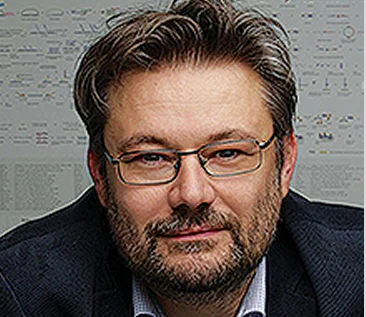Privacy policy
Thank you for visiting our website. Protecting your privacy is important to us, and we want to inform you about how we collect and use your personal data.
The privacy principles followed on this website are:
- We do not collect more information than necessary.
- We do not use data for purposes other than those specified.
- We do not retain data if it is no longer needed.
- We never sell, loan, or publicly disclose your personal data.
- We do not share your data with third parties.
- We do not transfer your personal data to third countries or international organizations.
What personal data we collect and why
Contact Forms
If you fill out the contact form on the website, we will store the data you entered. This data is used solely to respond to your inquiry, and any change in its usage will be communicated to you. Otherwise, it will not be used for other purposes.
Embedded content from other websites
Articles on this website may include embedded content (e.g., videos, images, articles, etc.). Embedded content from other websites behaves as if the visitor has visited the respective external site.
These websites may collect data about you, use cookies, embed additional third-party tracking, and monitor your interaction with the embedded content, including tracking your interaction if you have an account and are logged in to that website.
Google analytics
Data collection
Our website uses Google Analytics to gather certain information about your visit. This includes details about your browser, operating system, location (city/country), visit duration, pages viewed, and other similar data. These data are collected through cookies and similar technologies. Importantly, we do not have access to information about individual users but only receive numerical data on website usage.
Data usage
The data collected through Google Analytics is used solely for analyzing website traffic, understanding user behavior, and improving content and services. This helps us better understand your interests and preferences to provide a more relevant experience while using the site.
Google Analytics disclaimer
Please note that we do not control the data collection process by Google Analytics; this is managed by Google. For more information, read Google’s Privacy Policy to understand how they handle your data: Google Privacy Policy.
Data storage
Data collected through Google Analytics is generally stored on Google servers, which may be located in various countries worldwide. Google handles your data according to its own privacy policies.
Your consent
By using our website, you consent to the collection and processing of data through Google Analytics under this Privacy Policy. If you do not want your data to be collected via Google Analytics, you can disable cookies in your browser settings or use script-blocking tools.
Data security
Your privacy is important to us, and we take reasonable measures to protect your personal data from unauthorized access, disclosure, loss, or destruction.
Changes to the Privacy Policy
This Privacy Policy may occasionally change to comply with legal and regulatory requirements or to reflect updates in how we use your personal data. Any changes will be posted on this page, so we encourage you to review the Privacy Policy regularly.
Contact
If you have any questions or concerns regarding our Privacy Policy or how we handle your data, feel free to contact us at bioinfo@bioinfo.hr.
Last updated: April 2025
Cookies
This website and its online services may use cookies to improve functionality. The decision to allow cookies on this site is entirely yours. However, note that the website functions optimally only when cookies are enabled.
What Are Cookies?
Cookies are small files that your browser saves on your device when you visit my website. These allow the site to recognize your computer during future visits and provide a more personalized experience.
Cookies do not monitor every action you take and are not malicious code or viruses. They are not linked to unwanted messages or spam, cannot store passwords, and are not exclusively intended for advertising. Personal information, such as your name or email address, is not stored by cookies.
Types of Cookies
Session Cookies and Persistent Cookies
- Session Cookies: Temporary cookies that expire after you leave the website. They are essential for certain features or functionalities.
- Persistent Cookies: These enhance user experience by remembering your login details or preferences, so you don’t have to enter them each time you visit. Their duration depends on your browser settings.
First-Party and Third-Party Cookies
- First-Party Cookies: Issued by this website and often serve to ensure proper functionality.
- Third-Party Cookies: Set by external services (e.g., YouTube). I do not control these cookies, so refer to their respective privacy policies.
Cookie Categories
- Essential Cookies: Required for the website’s operation. Examples include PHPSESSID cookies.
- Performance Cookies: Collect anonymous information on user behavior to improve website functionality.
- Functional Cookies: Remember user preferences (e.g., language settings).
This website does not use marketing cookies.
Managing Cookies
You can block some or all cookies on this website, but this may affect functionality. You can also accept or decline cookies by adjusting your browser settings. Detailed information on cookies and browser settings can be found at www.allaboutcookies.org.


